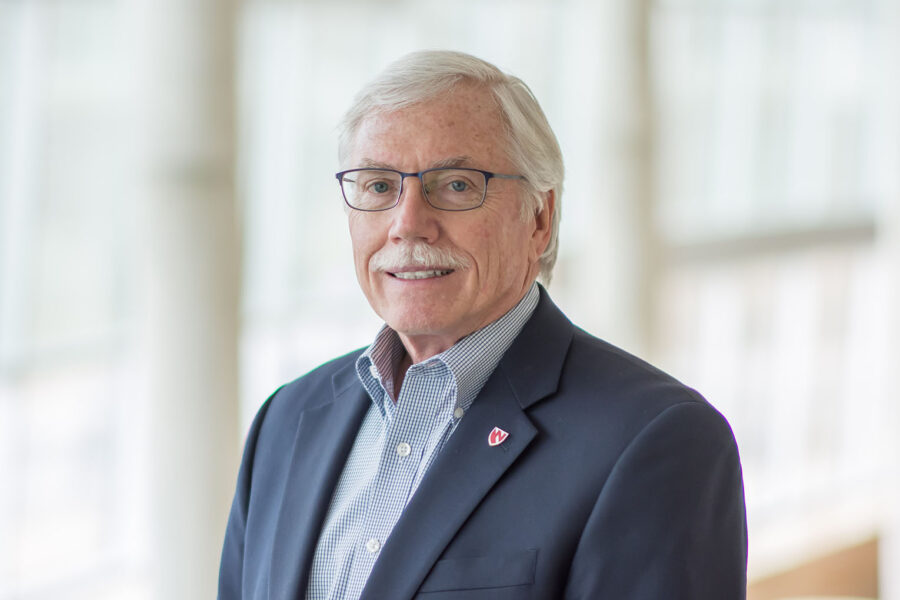This profile is part of a series to highlight the researchers who will be honored at a ceremony on Nov. 9 for UNMC’s Scientist Laureate, Research Leadership, Distinguished Scientist, New Investigator and Community Service to Research Award recipients.
Research Leadership
The Research Leadership Award honors scientists previously recognized as Distinguished Scientists who have a longstanding research funding history and also serve as research leaders and mentors on campus.
- Name: John S. Davis, PhD
- Title: Professor and director of research and development, Olson Center for Women’s Health, Departments of Obstetrics and Gynecology and Biochemistry and Molecular Biology; director, Nebraska Center for Women’s Health Research; senior research career scientist, Nebraska-Western Iowa Veterans Affairs Healthcare System
- Joined UNMC: 2021
- Hometown: Minot, North Dakota
Please describe your research focus in three words:
Women’s reproductive endocrinology
Why is research important in the world today?
Insights provided by medical research today promise to lessen the impact of our greatest health problems, including infertility, metabolic disorders, aging and cancer.
My work will make a difference because:
Female infertility affects an estimated 7.5 million women of reproductive age and affects 10% of married couples. Fueled by medical advances and social changes, more women are delaying childbirth, resulting in increased diagnosis of infertility. Older women are more likely to have trouble conceiving when compared to younger women. Although ovarian aging is a natural physiological process, cessation of ovarian function at midlife increases susceptibility to the development of co-morbidities, such as osteoporosis and cardiovascular disease, which decreases quality of life and increases the health care burden. Our research aims to transform our understanding of the mechanisms used by hormones and other factors to control ovarian function to improve diagnosis and treatment of age-related cases of infertility. This research has a dual impact that can benefit fertility rates in humans and domestic farm animals.
The best advice I could give a beginning researcher is:
Develop a passion for reading, writing and communicating science. Don’t be afraid to ask for help or advice. Develop a positive approach to maximize the benefit of critical reviews of your work.
The toughest lesson I’ve learned is:
Reviewers and funding agencies appreciate projects or proposals that are simple and focused.
The best part of my job is:
Working with and watching students and junior faculty develop into confident and successful scientists and teachers.
Three things you may not know about me are:
- My wife and I have six wonderful children and four grandchildren.
- I enjoy reading and watching mystery and thriller stories.
- In addition to working for multiple universities, I have enjoyed 40 years as a VA scientist.

Congratulations, John. Thank you for your leadership!
Congratulations John!
Congratulations Dr. Davis!
Congratulations, John
Congratulations John! Well deserved!
John is a true leader in every definition of the word. It should be lifted up that as a VA Senior Research Career Scientist, Dr. Davis is recognized as one of only 52 nationally with this prestigious award for basic and clinical research by the Department of Veterans Affairs.
Congratulations John!
Congratulations Dr. Davis!
(I thought you joined UNMC in 2001, right?)
Congratulations Dr. Davis!
Congratulations Dr. Davis!
Congratulations Dr. Davis!
Congratulations, John. I can’t think of anyone more deserving of this honor. Your research has and will make a difference in many lives.
Congratulations John! Well deserved!
I am so proud of you and your accomplishments!! You were a mentor for me years ago, and I still respect so much. Happy for you and your family – – carry on, my old friend.
Hi Larry, I just noticed your comment. Thank you. Best regards.